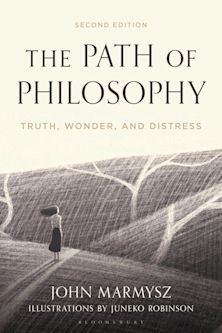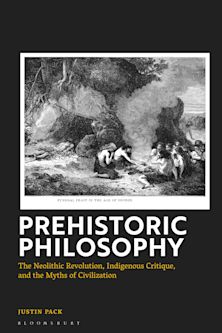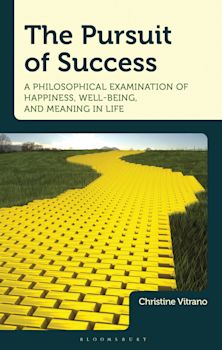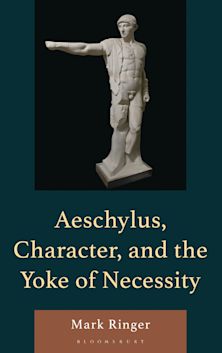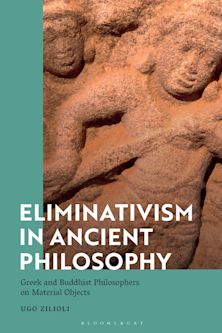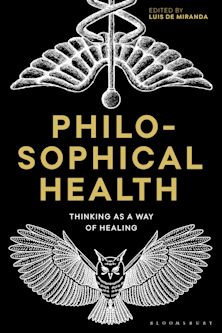- Home
- ACADEMIC
- Philosophy
- Ancient Philosophy
- The Function Argument in Aristotle's Ethics
The Function Argument in Aristotle's Ethics
Happiness and the Human Good
The Function Argument in Aristotle's Ethics
Happiness and the Human Good
This product is usually dispatched within 1 week
- Delivery and returns info
-
Free US delivery on orders $35 or over
You must sign in to add this item to your wishlist. Please sign in or create an account
Description
Jakub Jirsa provides the first book-length study of the “function argument”, outlining its central importance for Aristotle's ethics and his understanding of happiness and living well.
The Function Argument in Aristotle's Ethics gives a systematic account of the development of the function argument from Plato's Republic to the Nicomachean Ethics, with an explication of the interdependence between different versions of the argument which appear in Aristotle's ethical writings. In careful close readings of Aristotle's Proptrepticus, the Eudemian Ethics and the Nicomachean Ethics, Jirsa makes the case that the function (ergon) argument – that the function of human beings is virtuous activity of the rational part of the soul – serves as a transition from formal to substantial ethical debate and helps to differentiate between happiness and the happy life. The book then evaluates Aristotle's function argument against contemporary critiques.
With English translations of sections of the Proptrepticus based on the recent reconstruction from ancient sources and fragments, this volume offers a novel context for understanding a key element of Aristotle's ethical works, and is an ideal reference for those studying Aristotelian ethics, virtue ethics and the history of philosophy.
Table of Contents
List of Abbreviations
1. Introduction
2. The Philosopher's Life according to the Protrepticus and the ergon Argument
3. The ergon Argument in the Eudemian Ethics
4. The ergon Argument in the Nicomachean Ethics
5. The ergon Argument and Eudaimonia
6. Conclusion
Bibliography
Index
Product details

| Published | Oct 16 2025 |
|---|---|
| Format | Hardback |
| Edition | 1st |
| Extent | 240 |
| ISBN | 9781350511750 |
| Imprint | Bloomsbury Academic |
| Dimensions | 9 x 6 inches |
| Publisher | Bloomsbury Publishing |
About the contributors
Reviews
-
This is the first book-length treatment of the so-called ergon argument that makes part of the classical philosophers' attempt to ground ethics in human nature. As such the argument has attracted the attention of contemporary philosophers, especially the founders of virtue ethics. Jirsa examines closely all passages where the ergon argument occurs, at the end of Republic I and in Aristotle's ethical treatises, the Protrepticus, the Eudemian Ethics, and the Nicomachean Ethics I. The book aims to show that the ergon argument crucially refers to the activity of the soul and regarding Aristotle in particular it sets out to show how the ergon argument connects to the eudaimonia, arguing that the latter amounts ultimately to contemplation (theoria). This is a philosophically sophisticated, clearly written book that contains much that is original, even intriguing. It is essential reading for both scholars of ancient philosophy as well as for virtue ethicists.
George Karamanolis, University of Vienna, Austria
-
There are a handful of arguments in the history of philosophy so interesting and profound that they seem to admit of endless, fruitful consideration. The function argument of Aristotle is one of these. And there is no treatment of the argument which rivals Jakub Jirsa's for its comprehensiveness, accuracy, and soundness of insight
Michael Pakaluk, The Catholic University of America, USA
-
The “function” (or ergon) argument is one of the most important in all of Aristotle's ethics, and there is an avalanche of literature discussing the various versions of it in different works. Jakub Jirsa is the first scholar to offer a complete analysis of the argument in all of the ethical works where it appears, including not only the Eudemian and Nicomachean Ethics, but also Aristotle's popular lost work, the Protrepticus. The Protrepticus version, which is clearly the earliest version, is at the same time the most neglected one. By taking it very seriously, Jirsa has been able to make considerable progress on several seemingly intractable issues, and his discussion is not only the most complete but also the best that I know of. All future discussion of this central argument will have to start from his account.
Monte Ransome Johnson, University of California, San Diego, USA
-
This is a very interesting book which explores in a detailed way the four versions of the ergon argument: (i) Plato's Republic, (ii) Aristotle's Protepticus, (iii) Aristotle's EE and (iv) Aristotle's NE. The argument is clearly presented, and the author supports his claims with textual evidence and analysis, discussing the more important contrary positions found in the literature.
Marco Zingaro, University of São Paulo, Brazil

ONLINE RESOURCES
Bloomsbury Collections
This book is available on Bloomsbury Collections where your library has access.












